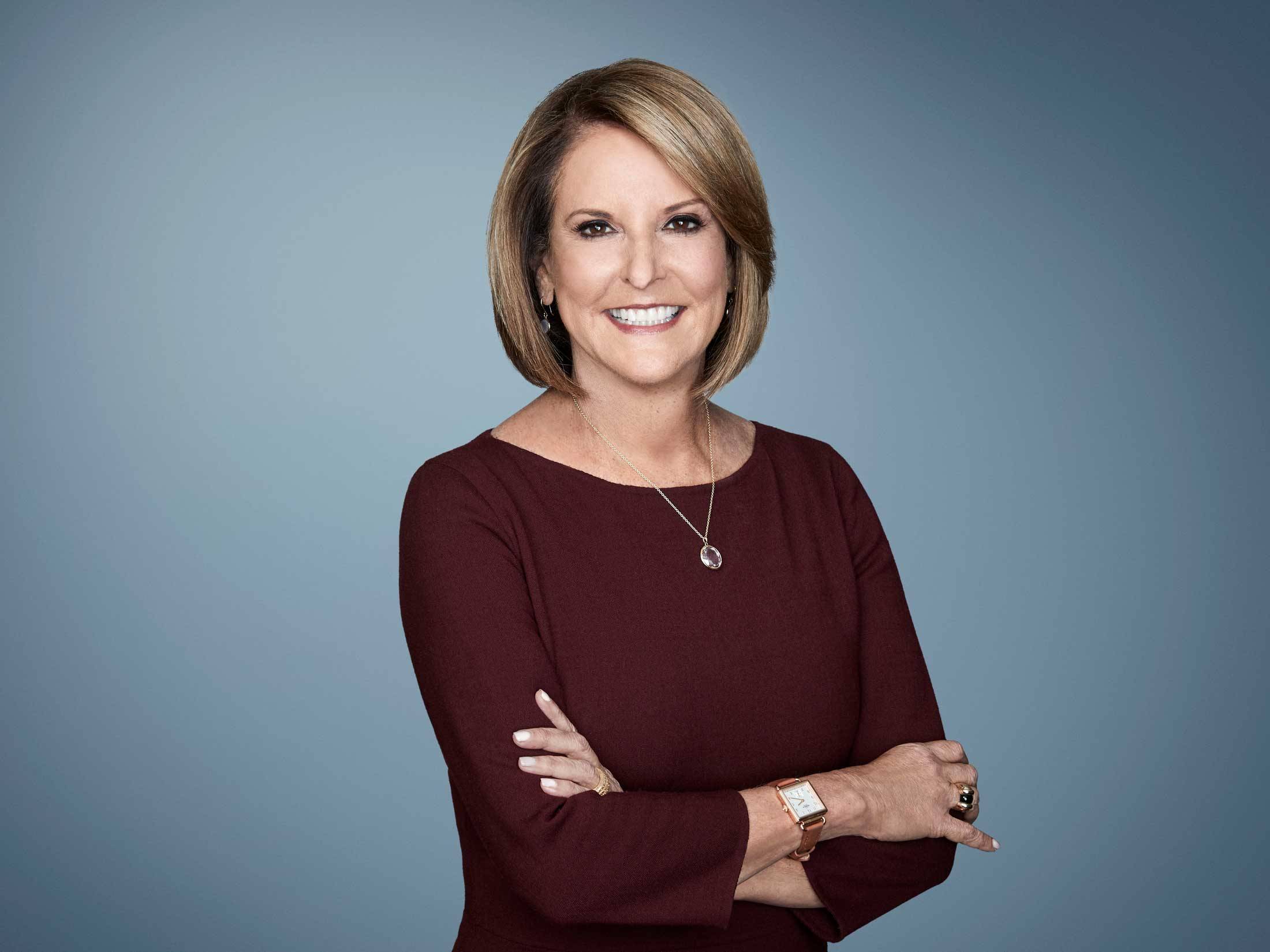When a question pops into your head, like "does Gloria Borger have cancer," it's not just the curiosity that matters; the way we put those words together is pretty important too. You know, getting the right bits of language in the right spots can make all the difference in how clear your thought comes across. It's almost like building something, where each piece has its own special place, and if you mix them up, well, things might just look a little off, or even mean something else entirely.
So, we often use certain small words to help our main action words do their job, especially when we're asking something. These little helpers, you might say, change their shape a bit depending on who or what we're talking about. It's a subtle thing, but it helps our sentences flow and makes sure everyone gets what we're trying to communicate. For instance, that little word "does" in "does Gloria Borger have cancer" is doing some pretty heavy lifting, even if it seems small.
Frankly, whether you're chatting with a friend or writing something for a wider audience, having a good grip on these language habits makes your message much stronger. It means your ideas are presented in a way that's easy to grasp, and there's less chance of someone getting confused about what you're trying to get at. Today, we're going to take a closer look at these language helpers, specifically "do" and "does," and how they fit into questions like the one about Gloria Borger.
Table of Contents
- What's the Deal with 'Do' and 'Does'?
- When Do We Use 'Does' in "does gloria borger have cancer"?
- Are 'Do' and 'Does' Always Just Helping Out?
- Is "does gloria borger have cancer" a Heteronym?
- Getting a Good Grip on 'Do' and 'Does'
- How Does This Apply to "does gloria borger have cancer"?
- What Happens When 'Do' and 'Does' Get Mixed Up?
- Improving Your Own "does gloria borger have cancer" Questions
What's the Deal with 'Do' and 'Does'?
You know, "do" and "does" are, well, they're both ways of saying the same basic action word, "do," but in the present moment. They're like two different outfits for the same person, chosen depending on the situation. The big thing that makes you pick one over the other, it turns out, is who or what is actually doing the action in your sentence. This idea of matching the verb to the one performing the action is a pretty fundamental part of how we put sentences together in English.
Basically, these two forms are present tense versions of the verb "do." They help us talk about things that are happening right now, or things that happen all the time. For instance, when you want to ask about something that someone regularly experiences, you might reach for one of these. It's kind of like how you pick between "is" and "are" when you're describing something; the choice simply depends on the person or thing you're talking about.
In some respects, getting a handle on when to use "do" and when to use "does" is a really important step for anyone wanting to speak or write English in a way that feels natural and correct. It helps your words make sense to others, and it shows a good command of the language. We'll be looking at some simple ways to figure out which one fits best, and you'll see it's not as complicated as it might first appear.
When Do We Use 'Does' in "does gloria borger have cancer"?
So, when you're talking about a single person or thing, and that person or thing is "he," "she," or "it," that's when "does" steps in. It's the form of "do" that goes with those particular subjects. Think of it this way: if your subject could be replaced by one of those three pronouns, then "does" is probably the word you're looking for. This is why, in a question like "does Gloria Borger have cancer," we use "does." Gloria Borger is a single person, a "she," so "does" is the fitting choice here.
You see examples of "does" used this way all over the place. For instance, you might say, "He does his homework every night," or "She does enjoy a good book." The same rule applies when you're asking a question about a single individual. It's about making sure the action word agrees with the person or thing doing the action. This agreement helps keep our sentences clear and prevents any confusion about who is doing what.
It's kind of like how you use "is" with singular subjects and "are" with subjects that are more than one. You'd say, "The cat is sleeping," because "cat" is one animal. But you'd say, "The cats are playing," because "cats" means many. In a similar way, "does" pairs up with singular subjects, while "do" pairs up with subjects that are plural or certain special pronouns. This comparison, in fact, often helps people grasp the idea more easily.
Are 'Do' and 'Does' Always Just Helping Out?
Well, actually, "do" and "does" can play a couple of different roles in a sentence. They can act as the main action word, the one that really tells you what's going on. For example, if someone says, "He does the dishes every day," the word "does" is the core action there. It's not helping another verb; it's the verb itself, showing what he performs as a regular chore. This is a very direct use of the word, showing an action being carried out.
On the other hand, and this is where it gets a little more interesting, "do" and "does" can also be auxiliary verbs. That's a fancy way of saying they're helper words. When they're helping, they team up with another action word to form questions or negative statements. Think about "where do you work?" Here, "do" isn't the main action; "work" is. "Do" is just there to help form the question. It's like a little signpost, telling you that a question is coming up, or that something is not happening.
In the case of "does Gloria Borger have cancer," "does" is absolutely acting as a helper. The main action word here is "have." "Does" is simply setting up the question, making sure it's phrased correctly for a singular subject, Gloria Borger. It's not saying Gloria Borger "does" something herself in this instance; it's just assisting the verb "have" in forming an inquiry. This distinction between main and auxiliary roles is pretty important for clear communication.
Is "does gloria borger have cancer" a Heteronym?
Now, this is an interesting point that sometimes comes up when people are looking at words closely. The source text mentions that "Does and does are two words that are spelled identically but are pronounced differently and have different meanings, which makes them heteronyms." This is referring to the word "does" itself, as in the verb "does" (pronounced 'duhz') and "does" as in the plural of "doe," the female deer (pronounced 'dohz'). So, yes, the *word* "does" can be part of a heteronym pair.
However, when we're talking about the verb "does" in the context of "do" versus "does," we're really focusing on its role in grammar, not its different pronunciations or meanings as entirely separate words. The "does" in "does Gloria Borger have cancer" is the verb form, and it's pronounced 'duhz'. It's not about a different meaning or sound here; it's about the correct grammatical form for the subject. This distinction is quite important for clarity.
So, while the word "does" can indeed be a heteronym when paired with its plural-of-doe counterpart, that specific linguistic curiosity isn't what's at play when we're choosing between "do" and "does" for verb agreement. It's more about ensuring our sentences follow the established patterns of English, rather than exploring the different sounds a word can make. That, you know, is a whole other topic.
Getting a Good Grip on 'Do' and 'Does'
The main thing to really keep in mind, and this is a pretty solid rule of thumb, is that "do" is used with subjects that are plural. So, if you're talking about "we," "they," "you," or a group of things, "do" is your go-to. For example, "We do enjoy our coffee," or "They do like pizza." It's about matching the verb to the number of people or things involved. This simple rule covers a lot of ground and helps avoid many common mistakes.
Conversely, "does" is the choice for subjects that are singular. When you're referring to "he," "she," "it," or a single person or item, "does" is the one you want. As we saw with "does Gloria Borger have cancer," Gloria Borger is one person, so "does" is the natural fit. This pattern helps ensure that your language feels smooth and correct to native speakers. It's a fundamental part of how English sentences are put together, really.
Understanding when to use each of these forms is absolutely key for communicating clearly, whether you're speaking or putting words down on paper. It helps you avoid awkward phrasing and makes your message much easier for others to understand. Think of it as a little puzzle piece; getting the right piece in the right spot makes the whole picture much clearer. It just makes things, well, more accurate.
How Does This Apply to "does gloria borger have cancer"?
Let's bring it back to our example: "does Gloria Borger have cancer." Here, Gloria Borger is the subject of our question. Since Gloria Borger is a single person, she falls into that "she" category, meaning we need the "does" form of the verb "do." If we were talking about a group of people, say "do they have cancer," then "do" would be the right choice. It's all about that subject-verb agreement, plain and simple.
The word "does" in this particular question isn't acting as the main verb, but as an auxiliary, or helper, verb. It's there to assist the main verb "have" in forming the question. This is a very common way we construct questions in English, especially when there isn't another helping verb like "is" or "are" already present. It's a pretty neat system, actually, once you get the hang of it.
So, the structure of "does Gloria Borger have cancer" perfectly illustrates the rules we've been discussing. You've got your singular subject, Gloria Borger, which calls for "does" as the auxiliary verb. Then, you have your main verb, "have," which stays in its base form. This combination creates a grammatically sound and easily understood question. It’s a clear example of how these language pieces work together, you know, just like they should.
What Happens When 'Do' and 'Does' Get Mixed Up?
When "do" and "does" get swapped around incorrectly, it can make a sentence sound a bit off to someone who's used to the standard way we speak. For instance, if you heard someone say, "Do he like pizza?" it might make you pause for a second. While the meaning might still come across, the phrasing just isn't quite right. It's like a musical note that's slightly out of tune; you can still recognize the song, but it doesn't sound as harmonious. This kind of mix-up can make communication feel a little less polished.
These small slips can sometimes lead to minor confusion, or at the very least, they can distract from the message you're trying to convey. Clear language helps your audience focus on what you're saying, rather than how you're saying it. When the grammar is smooth, the ideas flow more freely, and there's less chance of a misunderstanding. It's about making your words as effective as they can be, in a way.
So, paying attention to whether your subject is singular or plural, and choosing "does" or "do" accordingly, is a pretty straightforward way to make your English sound more natural and correct. It's a small detail, perhaps, but it contributes a lot to the overall quality of your communication. It really does make a difference in how your words are received, you know, in any kind of conversation or writing.
Improving Your Own "does gloria borger have cancer" Questions
To make sure your own questions, or any statements really, are clear and grammatically sound, it's a good idea to always think about your subject. Ask yourself: Is it one person or thing, or is it more than one? If it's a single person, like Gloria Borger, or a single item, then "does" is your word. If it's "I," "you," "we," or "they," or a group, then "do" is the one you're after. This simple check can help you get it right almost every time, as a matter of fact.
Practicing with different subjects can also really help solidify these rules in your mind. Try making up sentences with various people or things as the subject, and consciously choose between "do" and "does." The more you use these forms correctly, the more natural they'll feel. It's like learning any new skill; the more you practice, the easier and more automatic it becomes. You'll find yourself making the right choice without even thinking about it.
Ultimately, the goal is to communicate effectively, and getting these basic grammatical points right contributes a great deal to that. So, whether you're wondering "does Gloria Borger have cancer" or just talking about what someone does every day, a good grasp of "do" and "does" will serve you well. It's just a little bit of language know-how that can go a long way in making your words clear and impactful.



Detail Author:
- Name : Prof. Noah Corwin Sr.
- Username : elenora.schultz
- Email : jaskolski.tessie@hotmail.com
- Birthdate : 2005-07-21
- Address : 2428 Johnston Circles New Richard, WV 91809-7235
- Phone : +18204208793
- Company : Shields-Rice
- Job : Police Detective
- Bio : Qui earum excepturi voluptates expedita sed et. Repudiandae aut corrupti id expedita. Eligendi ad error earum quam sapiente. Perferendis perspiciatis reprehenderit et itaque atque odio.
Socials
instagram:
- url : https://instagram.com/shad5440
- username : shad5440
- bio : Ut vel blanditiis sed aut minima. Illum ut ea aut itaque. Numquam non aut enim rerum cum explicabo.
- followers : 1408
- following : 475
facebook:
- url : https://facebook.com/hand1971
- username : hand1971
- bio : Qui doloribus minus cupiditate et.
- followers : 479
- following : 1628
tiktok:
- url : https://tiktok.com/@shad8498
- username : shad8498
- bio : Quis temporibus aperiam repudiandae. Aut quod totam harum voluptates.
- followers : 5197
- following : 2176
twitter:
- url : https://twitter.com/shad_hand
- username : shad_hand
- bio : Rerum occaecati debitis quia tempore facilis. Magni libero rerum sit autem facilis distinctio consequatur. Vel et adipisci quos vel quo illo.
- followers : 2581
- following : 1332

